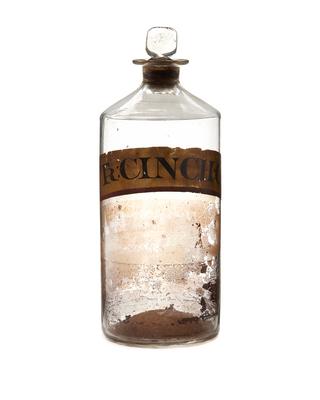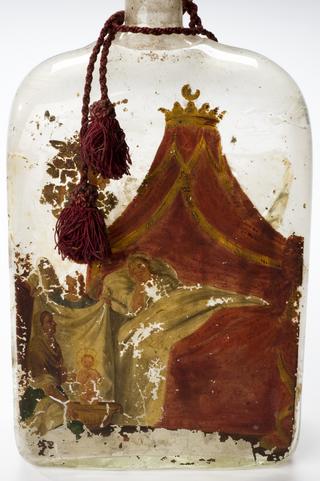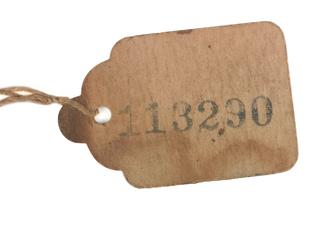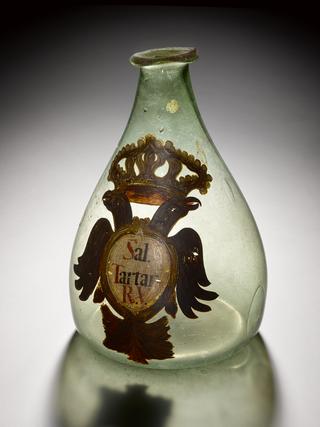Bottle of Huxley's 'Ner-Vigor', England, 1892-1943




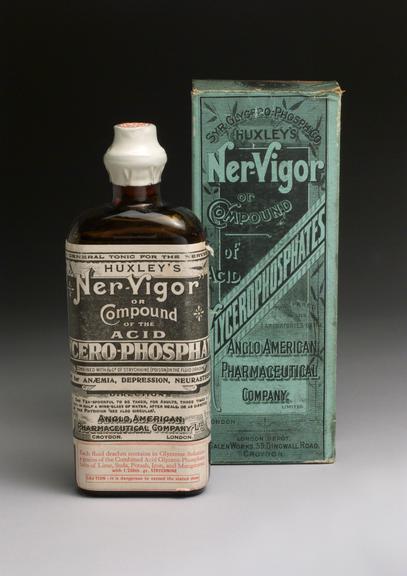
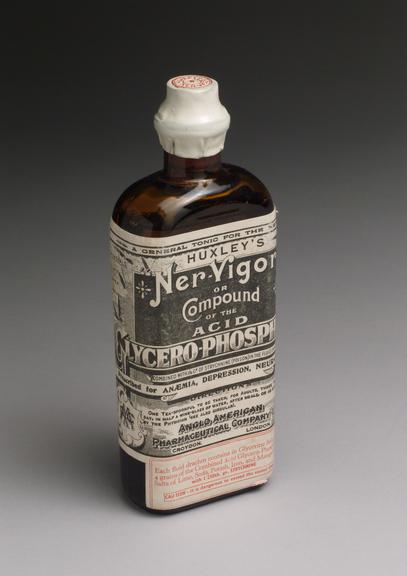

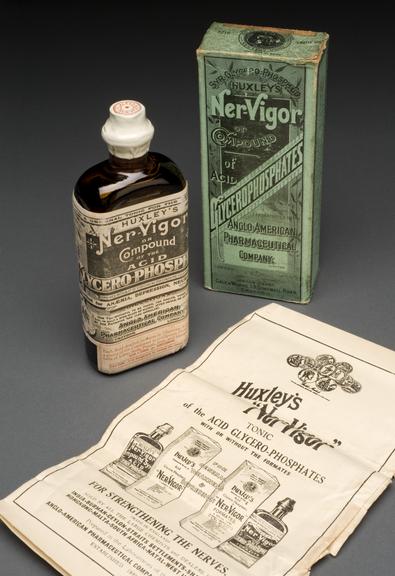
Bottle of "Ner-Vigor", with instructions, in original carton, by the Anglo-American Pharmaceutical Co. Ltd., Croydon, England.
Huxley’s ‘Ner-Vigor’ was sold as a strengthening tonic for the nerves and to improve digestion. Made by the Anglo-American Pharmaceutical Co Ltd, who were founded by Hubert Huxley Mason and based in Croydon, the tonic was prescribed for clinical depression, neurasthenia, anaemia, rickets, and sciatica. Available during and after the First World War, it was one of a number of 'over the counter' products that claimed to treat mental health problems and therefore was likely to be taken by veterans described as suffering from 'shell-shock'.
It was suggested that a teaspoonful should be added to half a wine glass of water and drunk three times a day after meals. Like some other medical products of the period, it contains a very small measure of the highly dangerous poison strychnine. The makers of the tonic claimed that it received favourable reviews in the medical press.
Details
- Category:
- Medical Glass-ware
- Collection:
- Sir Henry Wellcome's Museum Collection
- Object Number:
- A640381
- Measurements:
-
overall: 187 mm x 70 mm x 39 mm, .48kg
- type:
- medicinal tonic


